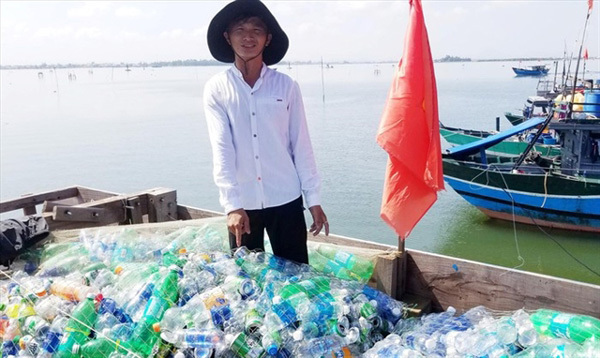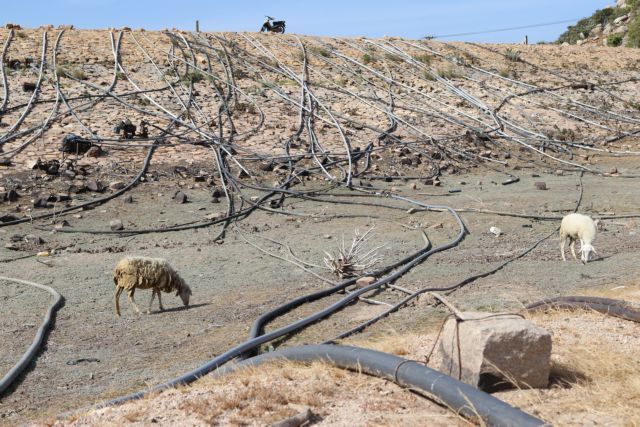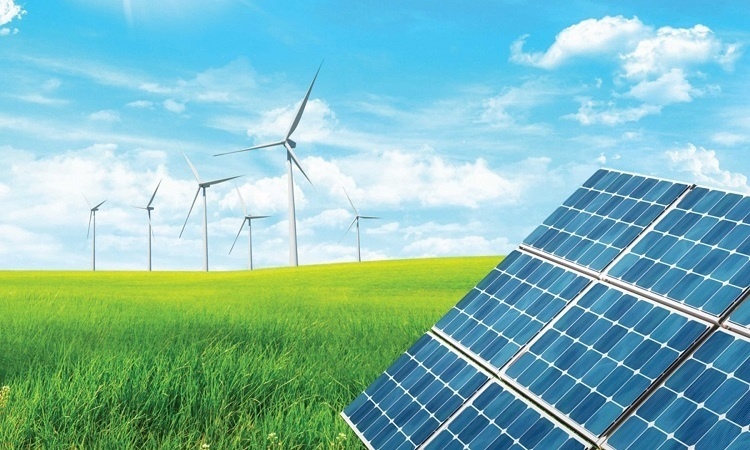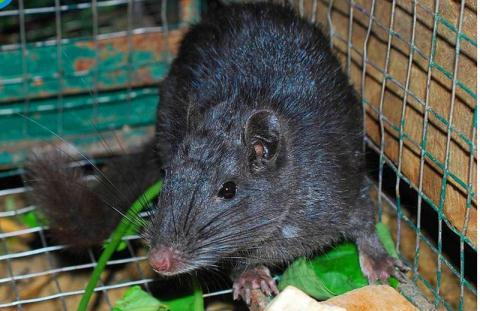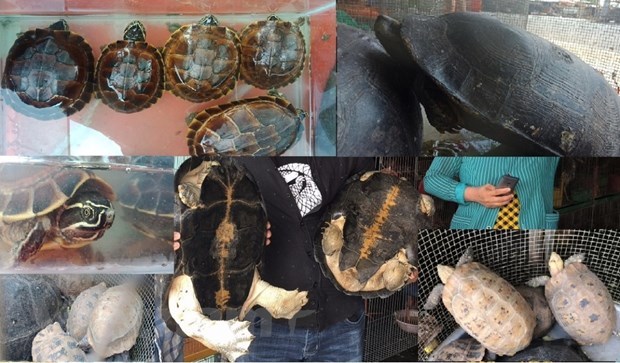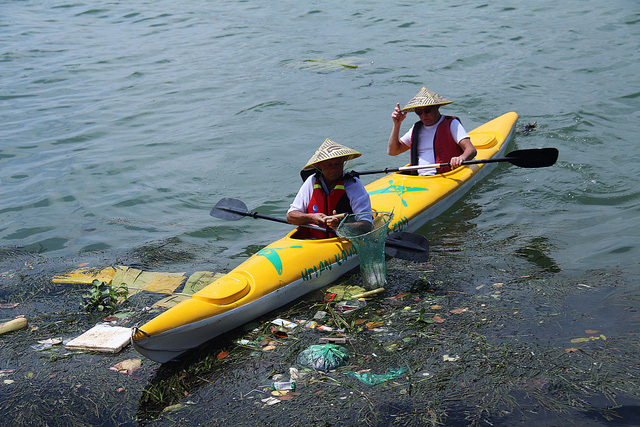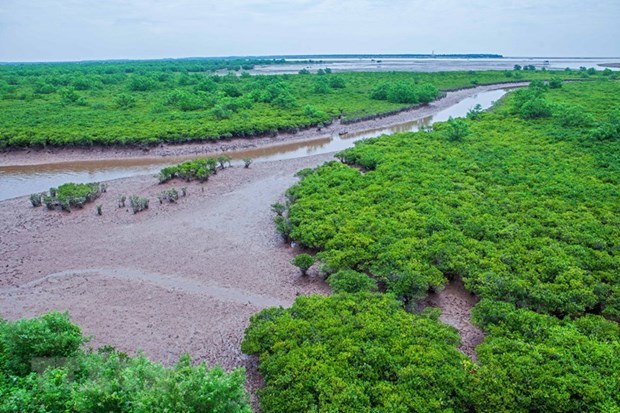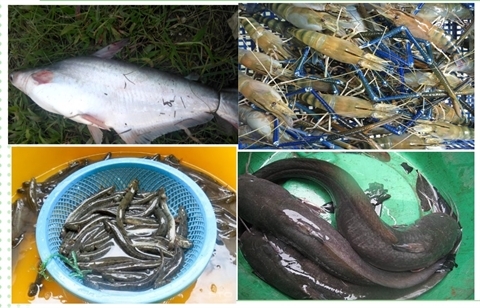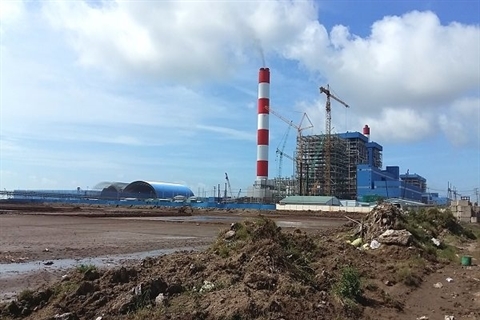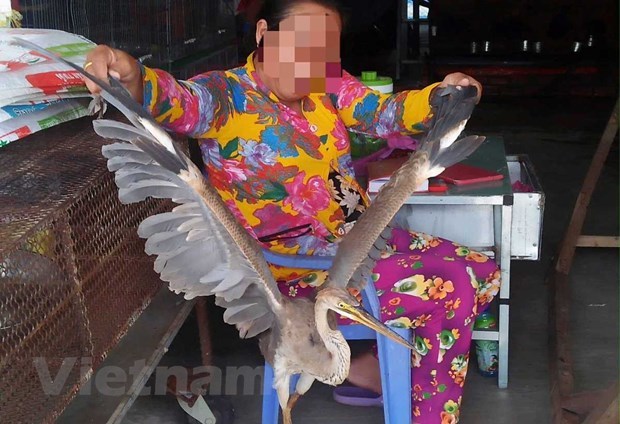- © Copyright of Vietnamnet Global.
- Tel: 024 3772 7988 Fax: (024) 37722734
- Email: [email protected]
Vietnam environment
Update news Vietnam environment
Air pollution’s effects on Vietnam’s economic structure
 According to Hoang Duong Tung, chair of the Vietnam Clean Air Network, former deputy general director of the General Directorate of Environment, PM 2.5 fine dust and ozone are the two most worrying issues.
According to Hoang Duong Tung, chair of the Vietnam Clean Air Network, former deputy general director of the General Directorate of Environment, PM 2.5 fine dust and ozone are the two most worrying issues.
Hue fisherman cleans up the ocean
 The image of a young man with a boat full of garbage collected from the ocean has become familiar to people in Phu Vang District of central Thua Thien-Hue Province.
The image of a young man with a boat full of garbage collected from the ocean has become familiar to people in Phu Vang District of central Thua Thien-Hue Province.
Vietnam foresees water issues in 2020
 Rivers across Vietnam are facing severe water shortages in the coming dry season.
Rivers across Vietnam are facing severe water shortages in the coming dry season.
Green credit takes off in Vietnam
 National green credit programs will help Vietnam reach its goals in the national green development strategy in a comprehensive way and help drive the economy towards sustainable development.
National green credit programs will help Vietnam reach its goals in the national green development strategy in a comprehensive way and help drive the economy towards sustainable development.
Truong Son Rock Rat found in Vietnam
 After the Phong Nha – Ke Bang National Park expanded, scientists discovered a mammal species believed to be extinct 11 million years ago.
After the Phong Nha – Ke Bang National Park expanded, scientists discovered a mammal species believed to be extinct 11 million years ago.
Severe drought expected in 2020: forecast agency
 The drought in the dry season this year will be quite harsh and water shortage may occur in many places. The central region may face serious water shortage from June.
The drought in the dry season this year will be quite harsh and water shortage may occur in many places. The central region may face serious water shortage from June.
VN advised to seek private sector resources for pollution prevention
 The government needs to seek help from the private sector to deal with the pollution problem, experts have urged.
The government needs to seek help from the private sector to deal with the pollution problem, experts have urged.
How high is the environmental cost?
 Vietnam has reported high GDP growth rate of 7.02 percent for 2019, which was created mostly by industrial production and the construction and service sectors.
Vietnam has reported high GDP growth rate of 7.02 percent for 2019, which was created mostly by industrial production and the construction and service sectors.
Landslides in Mekong Delta attributed to sand exploitation
 The World Wildlife Fund (WWF) and Mekong River Commission (MRC) say the river bed of Mekong’s two main tributaries in Mekong Delta fell by 1.4 meters in 1998-2008 due to sand overexploitation.
The World Wildlife Fund (WWF) and Mekong River Commission (MRC) say the river bed of Mekong’s two main tributaries in Mekong Delta fell by 1.4 meters in 1998-2008 due to sand overexploitation.
Red Book animals in danger, turtles threatened with extinction
 Of hundreds of Red-Book wildlife species on sale nationwide, turtles are the most wanted species.
Of hundreds of Red-Book wildlife species on sale nationwide, turtles are the most wanted species.
Students turn discarded plastic bags into bricks
 Tonnes of plastic waste, particularly discarded plastic bags threaten our planet with environmental pollution, and by now almost everybody knows it.
Tonnes of plastic waste, particularly discarded plastic bags threaten our planet with environmental pollution, and by now almost everybody knows it.
Studying river plastic waste: the early steps
 In Vietnam, management agencies are busy studying pollution caused by ocean plastic waste, but another type of pollution, river plastic waste, has occurred.
In Vietnam, management agencies are busy studying pollution caused by ocean plastic waste, but another type of pollution, river plastic waste, has occurred.
Exploring nine Ramsar sites of Vietnam
 Vietnam became a member of the Ramsar Convention in 1989. So far, nine wetlands in the country have been recognised as Ramsar sites – wetlands of international importance.
Vietnam became a member of the Ramsar Convention in 1989. So far, nine wetlands in the country have been recognised as Ramsar sites – wetlands of international importance.
Saltwater intrusion in Mekong Delta to ease by April
 Saltwater intrusion in the Mekong Delta might reduce between late March and June this year, according to Phung Tien Dung, head of the Hydrological Forecasting Department for the Central, Central Highlands and Southern region.
Saltwater intrusion in the Mekong Delta might reduce between late March and June this year, according to Phung Tien Dung, head of the Hydrological Forecasting Department for the Central, Central Highlands and Southern region.
Will the Mekong Delta have fewer coal-fired power plants?
 Ecology expert Nguyen Huu Thien has warned about a series of problems that coal-fired power plants may cause to the Mekong Delta, especially the impact on the ecosystem.
Ecology expert Nguyen Huu Thien has warned about a series of problems that coal-fired power plants may cause to the Mekong Delta, especially the impact on the ecosystem.
Coal-fired thermopower may kill aquaculture in Mekong Delta
 Aquaculture is one of the economic pillars and important livelihoods of the Mekong Delta. However, it is threatened by coal-fired thermopower plants.
Aquaculture is one of the economic pillars and important livelihoods of the Mekong Delta. However, it is threatened by coal-fired thermopower plants.
Air pollution may lead to 5% GDP decrease for Vietnam: foreign investors
 Vietnam has been warned that serious air pollution will affect economic growth in the long term, and lead to foreign investment decline.
Vietnam has been warned that serious air pollution will affect economic growth in the long term, and lead to foreign investment decline.
Energy Association asks PM to instruct provinces not to reject coal-fired power projects
 Warning of electricity shortage, the Vietnam Energy Association (VEA) has asked the Prime Minister to instruct local authorities not to turn their back on coal-fired thermopower projects.
Warning of electricity shortage, the Vietnam Energy Association (VEA) has asked the Prime Minister to instruct local authorities not to turn their back on coal-fired thermopower projects.
Farm produce market sells red-book wild animals
 Along the border line with Cambodia is an area called the southern ‘wildlife metropolis’.
Along the border line with Cambodia is an area called the southern ‘wildlife metropolis’.
VN has much work to do in reducing GHG emissions
 Jun Ichihara, Chief Advisor of the project ‘Support Planning and Implementation of Nationally Appropriate Mitigation Actions’ speaks about the Japan International Cooperation Agency’s work to help Vietnam reduce greenhouse gas emissions by 2030.
Jun Ichihara, Chief Advisor of the project ‘Support Planning and Implementation of Nationally Appropriate Mitigation Actions’ speaks about the Japan International Cooperation Agency’s work to help Vietnam reduce greenhouse gas emissions by 2030.

